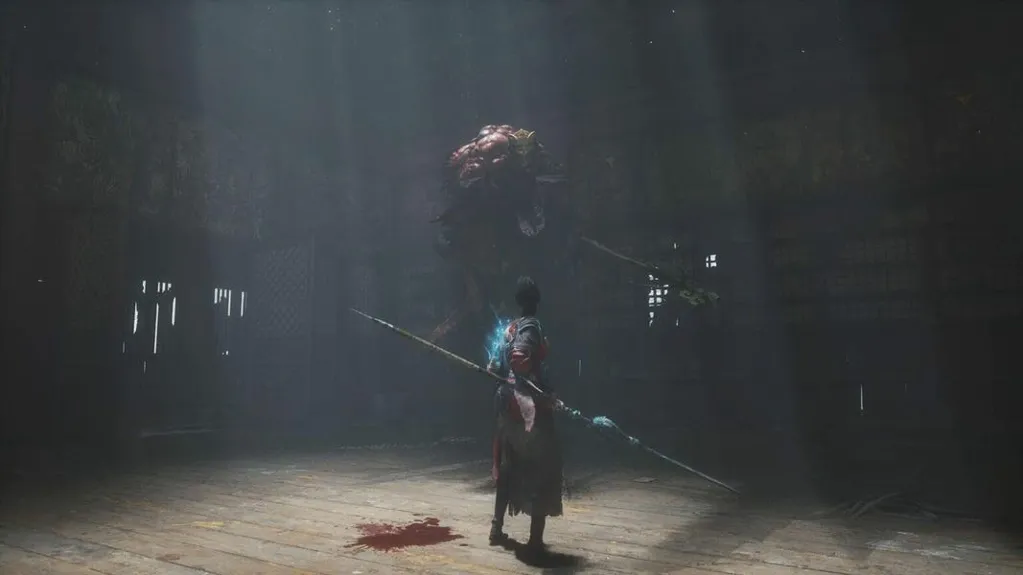Forbes contributors publish independent expert analyses and insights.
There's a lot riding on Wuchang: Fallen Feathers. It's the next major video game to emerge from China, a country with a growing influence on the wider games market. That's largely due to the success of last year's Black Myth: Wukong, a title made by Shenzhen's Game Science that has now sold a whopping 25 million copies worldwide. Will Wuchang follow in its path? After playing the game for just over three hours recently, it's clear it has heaps of potential to be one of 2025's best games.
We awaken as the pirate warrior, Wuchang, in a tranquil cave. It's strikingly similar to the opening of The Legend of Zelda: Breath of the Wild except we're in ancient China during the late Ming dynasty, not Hyrule. Both are equally picturesque, however.
Emerging from Wuchang's slumber, we venture outside. There's a stunning horizon in front of us. Mountains are shrouded in mist. Treetops sway gently in the breeze. But something is awry. Blue feathers sprout from one of our heroine's arms. Just like Link in Nintendo's adventure, Wuchang can’t remember a thing.
As we climb down a hillside, the game's tone changes. Everything starts to feel apocalyptic. It’s eerily quiet. A giant claw has torn through a muddy road covered in blood. It’s a fantasy world infused with supernatural horror. Nothing feels safe in this beautiful land all of a sudden.
That’s because a plague is spreading. We meet a local community holed up in a large house who tell us the disease is called the Feathering. Wuchang has it. If it’s left untreated, she’ll turn into a ghastly creature. And so begins her plight to find a cure and to discover who she was before all this turmoil started.
At first Wuchang appears to be just like every other soulslike game. The first hour or so has us experimenting with the standard array of light and heavy attacks. We learn the basics of fighting which, as expected, requires patience to decipher a foe’s behavioural patterns. Shrines are dotted around; they can be used to replenish Wuchang’s health but doing so will reset all the monsters you’ve just killed. If you’ve played something like Elden Ring before, you’ll know the drill.
But towards the end of my demo it became apparent that the developer Leenzee is trying to do something different with this worn out formula. There’s bold choices - jumping isn’t an option and you can’t parry from the start (although it can be unlocked later). This combat setup is going to be divisive but it actually makes everything feel more cinematic and snappier.
There’s an emphasis on dodging attacks here too. Time one perfectly and you’ll be able to use your weapon’s special abilities for extra damage. The further you progress, more weapons and upgrades become available. Just how much depth is offered in terms of customising your own fighting style remains to be seen.
A magic system is bolted on too; it means you can flit around the battlefield and fire attacks off from a distance which makes everything generally more aggressive. You take the fight to the enemies in Wuchang more often than not, regardless of how grisly and challenging they can be.
An unusual feature captures that spirit perfectly. Every time Wuchang dies, a madness meter increases. This makes her more susceptible to damage while also temporarily powering up her attack statistics. If you’re getting absolutely battered by an enemy time and again, it means you can respawn stronger (and again, fight more aggressively) so you stand a greater chance of progressing.
Once that bar peaks, a demon appears at the site of your last death. Defeat it and you’ll be able to reclaim the red mercury (this game’s currency) you dropped. Good luck with that as they’re mighty tough to kill.
In my short play through I faced a couple of boss fights too. They’re a spectacle and feel more accessible than what’s usually on offer in this genre as the difficulty is more balanced. There’s still a lot to learn about Wuchang: Fallen Feathers - how far will upgrades and progression permit you to diversify your playstyle? Will its locations provide enough variety? It remains unclear but what I’ve seen so far gives me high hopes.
